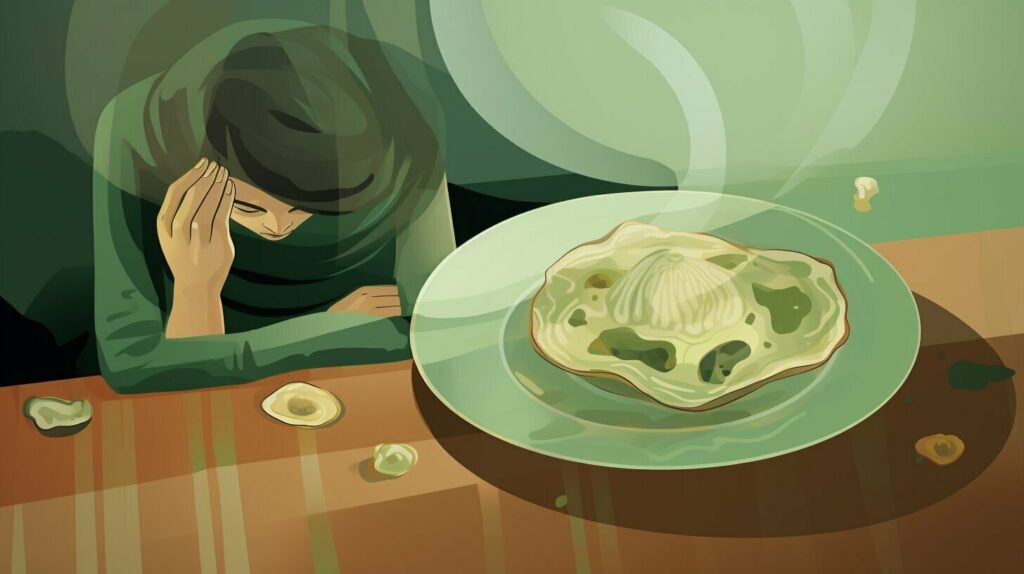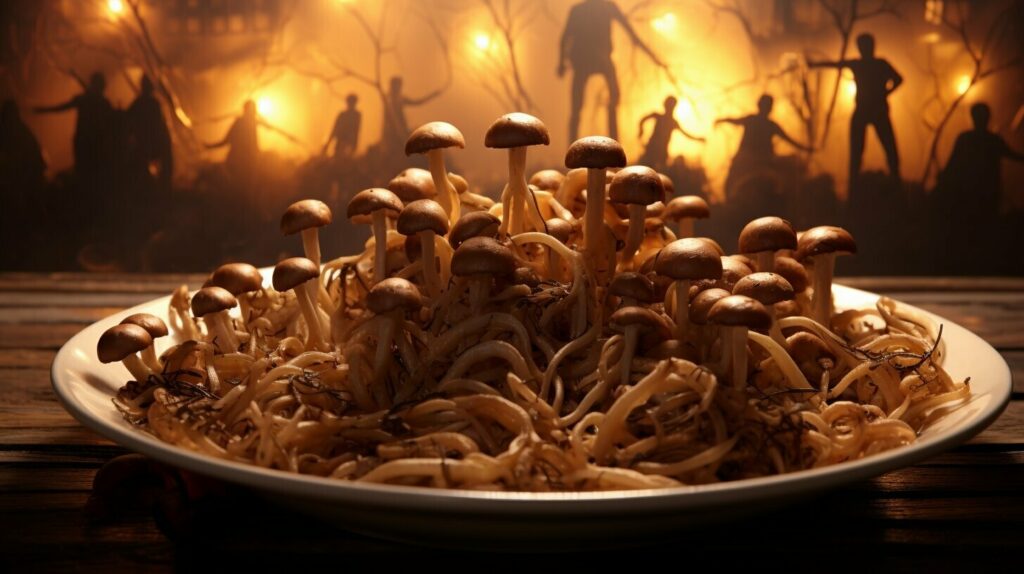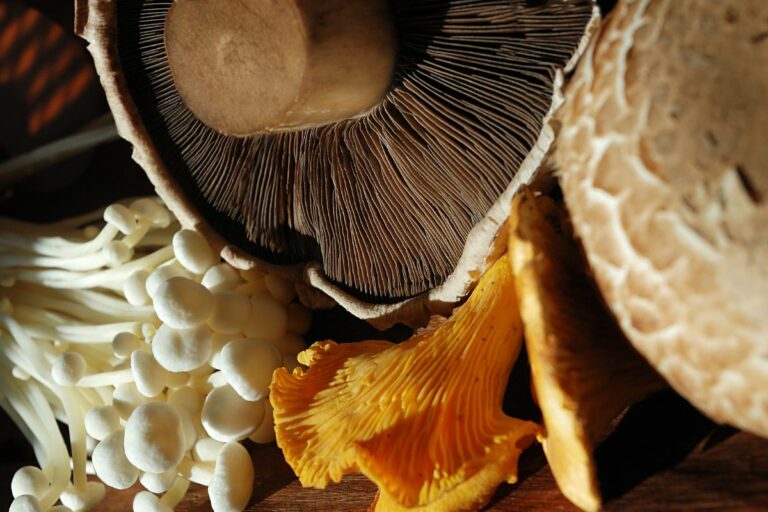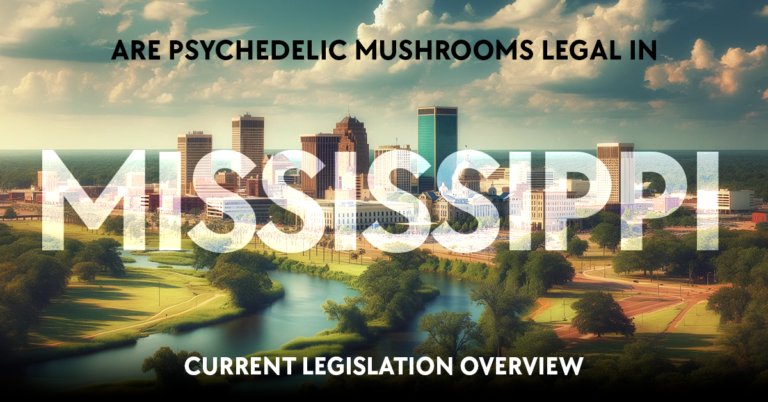When it comes to healthy eating, mushrooms are often considered a nutritious and flavorful addition to any meal. However, it is important to be aware of the potential risks and drawbacks associated with consuming them. In this comprehensive guide, we will explore the lesser-known disadvantages of including mushrooms in your diet, including health risks, potential dangers, negative effects, and hazards.
While mushrooms may offer various health benefits such as boosting immunity and aiding digestion, they can also pose certain risks and hazards. Some of the potential drawbacks of including mushrooms in your diet include:
- Health Risks: Consuming mushrooms in large quantities or under certain circumstances can lead to health risks such as poisoning or allergic reactions.
- Potential Dangers: Certain mushroom varieties may contain natural toxins or heavy metals that can have adverse effects on your health.
- Negative Effects: Eating mushrooms may cause digestive issues and be problematic for individuals with gout or kidney issues due to their purine content.
- Hazards: Consuming unfamiliar or wild mushroom species can cause adverse effects on the nervous system or liver.
- Drawbacks: Some individuals may find the taste and texture of mushrooms unappealing, while certain varieties may be expensive or hard to find.
By understanding the potential risks and drawbacks of consuming mushrooms, you can make informed dietary choices and minimize any potential harm. In the following sections, we will delve deeper into each of these disadvantages and provide tips on how to safely incorporate mushrooms into your diet.
Mushrooms are a popular ingredient in a wide range of dishes, from soups and salads to risottos and stir-fries. However, eating mushrooms may pose certain health risks for some individuals.
One of the most significant risks associated with mushroom consumption is the potential for toxicity. Some varieties of mushrooms contain natural toxins that can cause severe illness or even death in humans. For example, the death cap mushroom, which is found in the United States and Europe, can cause severe liver damage and is responsible for numerous mushroom poisonings each year.
It is crucial to be able to distinguish between edible and poisonous mushrooms and seek expert advice if unsure. If you plan on foraging for wild mushrooms, it is essential to research and identify the different species before consuming them.
In addition to toxicity, some individuals may be allergic to mushrooms, which can cause a range of symptoms, from mild to severe. Allergic reactions may include hives, difficulty breathing, or anaphylaxis, a severe, life-threatening reaction.
Finally, consuming mushrooms in large quantities may also pose health risks. While mushrooms are a low-calorie food that can help promote weight loss, excessive consumption may lead to gastrointestinal problems, including bloating, gas, and an upset stomach.

Overall, it is essential to be aware of the potential health risks associated with consuming mushrooms. If you have any concerns or suspect that you have ingested a toxic mushroom, seek medical attention immediately.
Understanding the Potential Dangers of Eating Mushrooms
Table of Contents
Most people consider mushrooms safe to eat, but certain varieties do carry potential dangers that need to be taken seriously. Some mushrooms contain naturally occurring toxins that can cause adverse health effects.
Heavy metals, such as mercury and lead, can also accumulate in some types of mushrooms. Consuming these mushrooms can lead to heavy metal poisoning, causing symptoms such as nausea, vomiting, and stomach cramps.
It is important to purchase mushrooms from reputable suppliers and to cook them properly to minimize any potential risks. When foraging for wild mushrooms, it is crucial to know what you are picking and which varieties may be harmful.
Remember: When in doubt, seek help from an expert before consuming any unfamiliar mushrooms.

“Consuming some species of mushrooms can cause adverse effects on the nervous system or liver. It is crucial to exercise caution when foraging for wild mushrooms or consuming unfamiliar varieties.”
By being aware of the potential dangers and hazards of mushroom consumption, you can make informed dietary choices that will keep you healthy and safe.
Exploring the Negative Effects of Consuming Mushroom
While mushrooms may offer numerous health benefits, they may also have some negative effects on certain individuals. For instance, some people may experience digestive issues such as bloating, gas, or an upset stomach after eating mushrooms. This can be particularly true for individuals who have pre-existing conditions such as irritable bowel syndrome or inflammatory bowel disease. Individuals with gout or kidney issues may also experience problems when consuming mushrooms because they contain purines that can contribute to the formation of uric acid crystals.
It is worth noting that not all mushrooms are the same. Depending on the variety, some may contain more purines than others, which can increase the risk of negative side effects. Individuals who are unsure about whether mushrooms are suitable for their diet should consult with a healthcare professional to determine their best course of action.
Fun Fact: Did you know that some mushroom varieties, such as the shiitake mushroom, can cause an allergic reaction in some individuals? Symptoms may include hives, itching, or difficulty breathing. If you experience any of these symptoms after consuming mushrooms, seek medical attention immediately.
Lastly, it is important to ensure that mushrooms are cooked thoroughly before consumption. Consuming raw or undercooked mushrooms may increase the risk of foodborne illness, including gastrointestinal distress, nausea, vomiting, and diarrhea. Make sure to properly clean and cook mushrooms to ensure their safe consumption.

While mushrooms are generally safe to consume, certain species can pose hazards to your health. Eating the wrong types of mushrooms can have serious consequences, including adverse effects on the nervous system and liver. Symptoms of mushroom poisoning can range from mild nausea to life-threatening conditions like hepatotoxicity or neurotoxicity. It is essential to exercise caution when foraging for wild mushrooms or consuming unfamiliar varieties.
In some cases, mushrooms may contain naturally occurring toxins or heavy metals, which can have adverse effects on your health. When consuming mushrooms, it is crucial to source them from reputable suppliers and ensure that they are cooked properly to minimize any potential risks.

Additionally, some individuals may be allergic to mushrooms, which can result in a range of allergic reactions. These reactions can range from mild skin rashes to more severe symptoms like difficulty breathing or anaphylaxis. If you are allergic to mushrooms, it is essential to avoid them altogether.
In rare cases, consuming raw or undercooked mushrooms can result in foodborne illness. Raw mushrooms may contain harmful bacteria or parasites, such as E. coli or salmonella, which can cause serious infections. Thoroughly cooking mushrooms can help eliminate these risks and ensure their safe consumption.
Overall, while mushrooms offer numerous nutritional benefits, it is important to be aware of the potential hazards they may pose. Consult with healthcare professionals and practice safe food handling to mitigate any risks associated with mushroom consumption.
Examining the Side Effects of Including Mushrooms in Diet
While mushrooms offer various health benefits and are a great addition to many dishes, they can also cause side effects in some individuals. It is important to be aware of these potential side effects when including mushrooms in your diet.
One of the most common side effects of consuming mushrooms is gastrointestinal discomfort. Some people may experience bloating, gas, or an upset stomach after eating mushrooms. This may be due to the high fiber content of some mushroom varieties, which can be difficult to digest.
Another potential side effect of consuming mushrooms is allergic reactions. Some individuals may be allergic to mushrooms, which can result in a range of symptoms from mild (such as itching or hives) to severe (such as anaphylaxis). If you experience any symptoms of an allergic reaction after consuming mushrooms, seek medical attention immediately.
Additionally, certain medications can interact with mushrooms, leading to negative side effects. If you are taking any medications, consult with your healthcare provider before incorporating mushrooms into your diet.
It is important to note that these side effects are rare, and most people can safely consume mushrooms without experiencing any adverse effects. However, if you do experience any negative side effects, it is best to discontinue consumption and consult with a healthcare professional.

Eating mushrooms can be delicious and nutritious, but it’s important to be aware of the potential risks involved in consumption. One of the main concerns is the risk of foodborne illness from consuming raw or undercooked mushrooms. Raw mushrooms may carry harmful bacteria or parasites, which can cause serious health problems such as salmonella or E. coli infections. To minimize this risk, ensure that mushrooms are thoroughly cooked before consuming.
Another risk associated with mushroom consumption is the potential for allergic reactions. While rare, some individuals may be allergic to certain types of mushrooms, which can lead to mild to severe symptoms such as itching, swelling, and difficulty breathing. If you experience any of these symptoms after consuming mushrooms, seek medical attention immediately.
If you are foraging for mushrooms, it is important to be careful and knowledgeable about the potential dangers in the wild. Some mushrooms can be toxic and cause serious harm when ingested. It’s essential to be able to distinguish between edible and poisonous mushrooms and, when in doubt, seek expert advice.
| Keyword | Synonym |
|---|---|
| risks associated with eating mushrooms | potential hazards of mushroom consumption |

“Eating mushrooms can be a great addition to a healthy diet, but it’s important to be aware of the potential risks involved in consumption.”
By understanding and being mindful of the potential risks and drawbacks of consuming mushrooms, you can make informed decisions about your dietary choices. Always practice safe food handling and consult with healthcare professionals if you have any concerns or pre-existing conditions.
Exploring the Drawbacks of Consuming Mushrooms
While mushrooms are an excellent source of nutrition, they may not be suitable for everyone. One of the significant drawbacks of consuming mushrooms is that some individuals may find their taste or texture unappealing. This can make it challenging to incorporate them into their diet or enjoy them as a stand-alone dish.
Additionally, some mushroom varieties can be expensive or difficult to find, limiting accessibility for some individuals. This is especially true for exotic mushrooms, which may not be readily available in all areas.
Another potential drawback of consuming mushrooms is that they may cause gastrointestinal discomfort in some people. This can include symptoms such as bloating, gas, or an upset stomach. Furthermore, individuals with gout or kidney issues may need to limit their mushroom consumption due to the purines found in them.
Overall, while mushrooms offer numerous health benefits, it is important to consider their drawbacks and decide whether they are the right dietary choice for you. Remember to always consult with a healthcare professional if you have any concerns or pre-existing conditions before including mushrooms in your diet.

Consuming mushrooms may have various disadvantages that should be considered. While mushrooms may offer numerous health benefits, such as improving immune function and providing vitamins and minerals, certain individuals may experience negative effects such as digestive discomfort or allergic reactions. Additionally, some species of mushrooms may contain toxins or heavy metals, which can have adverse effects on health.
It is crucial to exercise caution when foraging for wild mushrooms or consuming unfamiliar varieties and to source mushrooms from reputable suppliers. Thoroughly cooking mushrooms can help eliminate potential risks, such as foodborne illnesses. If you have any concerns or pre-existing health conditions, consult with a healthcare professional before incorporating mushrooms into your diet.
While mushrooms may not be suitable for everyone due to personal preferences or accessibility issues, understanding their drawbacks allows you to make informed dietary choices. By practicing safe food handling and seeking expert advice, you can mitigate any potential risks associated with mushroom consumption.
Overall, while mushrooms may present certain disadvantages, they can still be a valuable addition to a balanced and healthy diet.
FAQ
What are the potential health risks of consuming mushrooms?
Consuming mushrooms can pose health risks, especially if ingesting toxic varieties or if you have an allergy to mushrooms. It is important to be able to identify edible mushrooms and seek expert advice if unsure.
Are there any dangers associated with eating mushrooms?
While most mushrooms are safe to consume, there can be potential dangers, such as naturally occurring toxins or heavy metals present in certain varieties. It is crucial to source mushrooms from reputable suppliers and ensure proper cooking techniques for safety.
What are the negative effects of consuming mushrooms?
Some individuals may experience digestive issues like bloating, gas, or an upset stomach after eating mushrooms. Additionally, mushrooms contain purines, which may be problematic for individuals with gout or kidney issues.
Are there any hazards associated with mushroom consumption?
In rare cases, certain species of mushrooms can cause adverse effects on the nervous system or liver. It is important to exercise caution when foraging for wild mushrooms or consuming unfamiliar varieties.
What are the potential side effects of including mushrooms in the diet?
While mushrooms are generally safe, some individuals may experience side effects such as allergic reactions, gastrointestinal discomfort, or interactions with certain medications. It is advised to consult with a healthcare professional if you have any concerns.
What are the risks associated with eating mushrooms?
Eating raw or undercooked mushrooms can carry risks of harmful bacteria or parasites, leading to foodborne illnesses. Thoroughly cooking mushrooms helps eliminate these risks and ensures safe consumption.
What are the drawbacks of consuming mushrooms?
While mushrooms offer nutritional benefits, some individuals may find the taste or texture unappealing, making it challenging to incorporate them into their diet. Additionally, certain varieties can be expensive or difficult to find, limiting accessibility.







